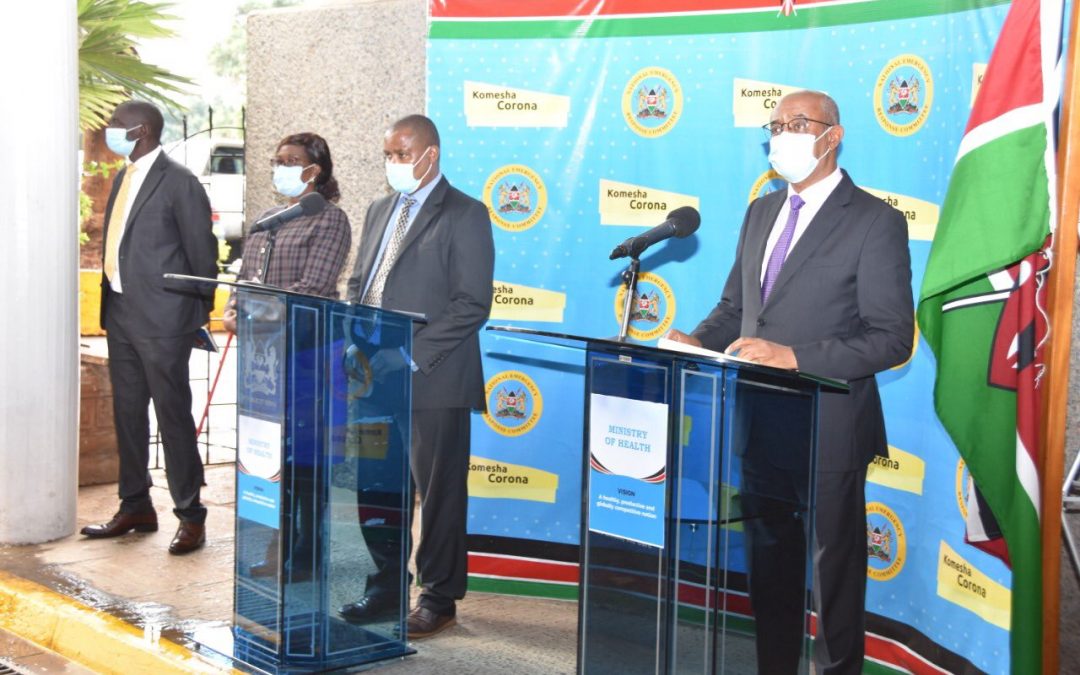Kenya has surpassed the 1,000 COVID 19 recoveries mark since the pandemic struck the country. This is despite hitting the 3,000 total number of COVID 19 cases countrywide. Making the announcement, Health Cabinet Secretary Dr.Rashid Aman applauded health workers for ensuring Kenya achieves the commendable milestone.
Dr. Aman said 105 more people had tested positive of the virus in the last 24 hours bringing the country’s total to 3,094.
The new cases are distributed as follows: Nairobi 43,Busia 18,Mombasa 11, Turkana 7, Migori 6, Kwale 5, Kiambu 5, Kilifi, Machakos, Taita Taveta 3 each, Kisumu 2 and Uasin Gishu, Siaya, Kajiado and Garissa had one case each.
Giving the demographics of the new cases, Dr. Aman pointed out that truck drivers were largely testing positive for the virus at various points of entry into the country. And for the first time, Busia surpassed Mombasa’s daily number of cases with long distance truck drivers bearing the number of cases. Turkana has also reported new cases due to infections recorded by long distance truck drivers.
Meanwhile, one patient succumbed to the COVID-19 diseases in the last 24 hours bringing the total number of fatalities to 89.
Dr. Aman said the patient had been hospitalized at one of the health facilities in Nairobi.
This even as home-based isolation and care for COVID 19 patients has been launched. Dr. Aman explained that the asymptomatic nature of the cases in the country has allowed for low risk patients to benefit from treatment at home, in keeping with the laid down guidelines.
Dr. Aman said the protocols, which are available at the ministry of health website, is meant to guide in home-based care of asymptomatic patients who account for 78 percent of all patients.
While the initiative will be implemented under supervision of medical and public health officials, he said, community volunteers will be involved in the daily assessment of home-based patients.
“Community health workers will be a key link between healthcare workers and the households,” he affirmed.
The CAS noted that the Nyumba Kumi initiative will play a key role in home-based care in informal settlements whereby it will guide in the identification of institutions owing to the fact that most households have limited spaces.
Home-based care in the informal settlements where households share small spaces will require identification of institutions within the community that meet the recommendations for providing such care.
